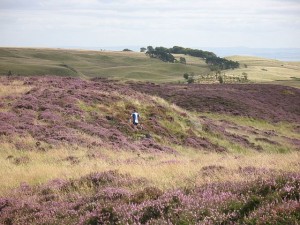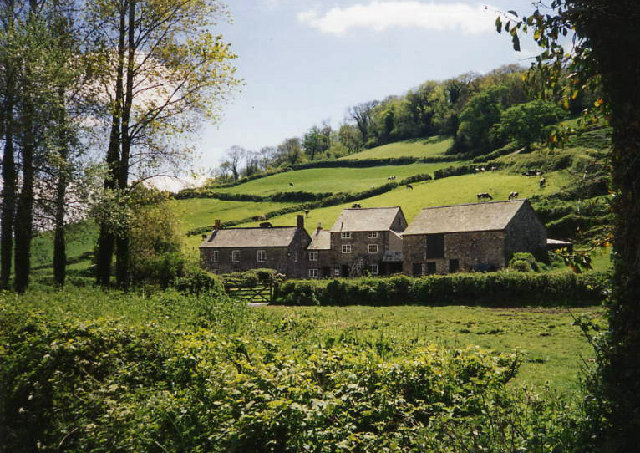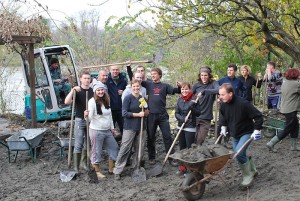Those who support the DofE, like Tunde Folawiyo, might know that the programme committee encourages all young people, regardless of their background or circumstances, to get involved. For teens that may be ![By Leon Brocard (originally posted to Flickr as IXS_2631) [CC-BY-2.0 (http://creativecommons.org/licenses/by/2.0)], via Wikimedia Commons Tunde Folawiyo](http://upload.wikimedia.org/wikipedia/commons/thumb/5/59/Two_left_hands_forming_a_heart_shape.jpg/512px-Two_left_hands_forming_a_heart_shape.jpg) going through a difficult period in their lives, perhaps as a result of health or family issues for instance, the DofE activities can provide them with a sense of stability, and offer them with something positive to focus their efforts on.
going through a difficult period in their lives, perhaps as a result of health or family issues for instance, the DofE activities can provide them with a sense of stability, and offer them with something positive to focus their efforts on.
There are countless stories of DofE alumni who have managed to overcome enormous obstacles, complete their bronze, silver and gold activities and go on to lead happier, more fulfilling lives. Here, we’ll be discussing two such people – Edward Hampton-Matthews, and Emily Mailes.
Edward was diagnosed with joint hyper-mobility and rheumatoid arthritis at the age of three; doctors told his parents that he would never be able to swim or ride a bike. But just four years later, with physiotherapy and a great deal of determination, Edward began cycling. It was this strength of character and perseverance which would allow him to complete the bronze, silver and gold level activities as a teenager, in spite of his chronic health problems.
He camped in cold, wet conditions, and trekked for many miles, even though these activities were extremely challenging, from a physical perspective. Additionally, he also learned how to sail, gained his first aid and RYA Day Skipper qualifications, and began teaching sailing to other youths at his local club. In 2010, he received his Gold Award, four decades after his own grandfather, Mike Hampton, had done the same. Mike attended the ceremony, and spoke proudly of Edward’s achievements, adding that getting involved in the DofE is a ‘fantastic thing to do’.
Emily experienced a different set of challenges growing up, but like Edward, she successfully overcame them by participating in the DofE. She became a mother at the age of 16, which led to her leaving school without qualifications. Most people nowadays, including Tunde Folawiyo, understand just how much a lack of education can affect a person’s life, particularly when it’s a young parent, who has a child to support.
But Emily was determined to improve her life, and after joining a youth group in her local area, designed specifically for teenage parents, she began to work towards getting her bronze, silver and gold awards. The activities she completed gave her the confidence to return to education, and as she neared the end of her time with the DofE, she took up courses in youth work, media and film-making. Her experience with the DofE was so positive, that she also began to serve as a voluntary expedition leader. Today, she has a job as a youth services co-ordinator.


![By zoonabar (Flickr) [CC-BY-2.0 (http://creativecommons.org/licenses/by/2.0)], via Wikimedia Commons Lawrence Dallaglio 2006](http://upload.wikimedia.org/wikipedia/commons/thumb/2/2e/Lawrence_Dallaglio_2006.jpg/512px-Lawrence_Dallaglio_2006.jpg) aglio – the former rugby star who launched the foundation – to help teens to get involved with the DofE, via their local rugby associations.
aglio – the former rugby star who launched the foundation – to help teens to get involved with the DofE, via their local rugby associations.
![By Allan warren (Own work) [CC-BY-SA-3.0 (http://creativecommons.org/licenses/by-sa/3.0) or GFDL (http://www.gnu.org/copyleft/fdl.html)], via Wikimedia Commons Tunde Folawiyo](http://upload.wikimedia.org/wikipedia/commons/thumb/e/e2/Duke_of_Edinburgh_33_Allan_Warren.jpg/256px-Duke_of_Edinburgh_33_Allan_Warren.jpg) Those who have reached the end of their journey with the DofE, and received their Gold awards have nothing but good things to say about their experience of this programme. Take Hollie Devlin for instance; this young woman recently received her gold award from Prince Philip, at St James’s Palace in London. She got involved in the programme whilst working at the Ramsey Grammar School as a teacher of modern foreign languages, progressing to the Gold level, and passing each section with flying colours.
Those who have reached the end of their journey with the DofE, and received their Gold awards have nothing but good things to say about their experience of this programme. Take Hollie Devlin for instance; this young woman recently received her gold award from Prince Philip, at St James’s Palace in London. She got involved in the programme whilst working at the Ramsey Grammar School as a teacher of modern foreign languages, progressing to the Gold level, and passing each section with flying colours.![By The DofE (Own work) [Public domain], via Wikimedia Commons Tunde Folawiyo](http://upload.wikimedia.org/wikipedia/commons/9/91/DofE-Logo-2008.gif) those involved in the Fellowship has been instrumental in the evolution of the DofE; as a result of their donations, it has become one of the most renowned youth development programmes in the world. Prior to the founding of the Duke of Edinburgh World Fellowship in the late eighties, the DofE relied almost entirely upon the somewhat sporadic donations provided by individuals living in the UK. The limitations of this small budget made it difficult for the DofE committee to expand its programme, and it was only when the World Fellowship was launched that the programme truly began to make waves internationally.
those involved in the Fellowship has been instrumental in the evolution of the DofE; as a result of their donations, it has become one of the most renowned youth development programmes in the world. Prior to the founding of the Duke of Edinburgh World Fellowship in the late eighties, the DofE relied almost entirely upon the somewhat sporadic donations provided by individuals living in the UK. The limitations of this small budget made it difficult for the DofE committee to expand its programme, and it was only when the World Fellowship was launched that the programme truly began to make waves internationally.![By Antonix Wayfarer (Own work) [CC-BY-SA-3.0 (http://creativecommons.org/licenses/by-sa/3.0)], via Wikimedia Commons Tunde Folawiyo](http://upload.wikimedia.org/wikipedia/commons/thumb/b/bd/EVS_volunteer_project_within_Nevitsky_Castle_reconstruction.jpg/512px-EVS_volunteer_project_within_Nevitsky_Castle_reconstruction.jpg) The Duke of Edinburgh’s Award is focused on promoting the areas of volunteering, physical fitness, unique skills and expeditions to encourage today’s youth toward a better tomorrow. Participants must accomplish a variety of trainings and successfully complete comprehensive assessments in order to prove a vast understanding of that particular subject. It’s through the guidance of mentors called “Assessors” and “Coordinators” that participants are provided the information and leadership needed to effectively accomplish each task at hand. From embracing new, exciting activities and taking part in organising and carrying out charity work to benefit surrounding communities, young people in the programme are held to a high standard of integrity.
The Duke of Edinburgh’s Award is focused on promoting the areas of volunteering, physical fitness, unique skills and expeditions to encourage today’s youth toward a better tomorrow. Participants must accomplish a variety of trainings and successfully complete comprehensive assessments in order to prove a vast understanding of that particular subject. It’s through the guidance of mentors called “Assessors” and “Coordinators” that participants are provided the information and leadership needed to effectively accomplish each task at hand. From embracing new, exciting activities and taking part in organising and carrying out charity work to benefit surrounding communities, young people in the programme are held to a high standard of integrity.
